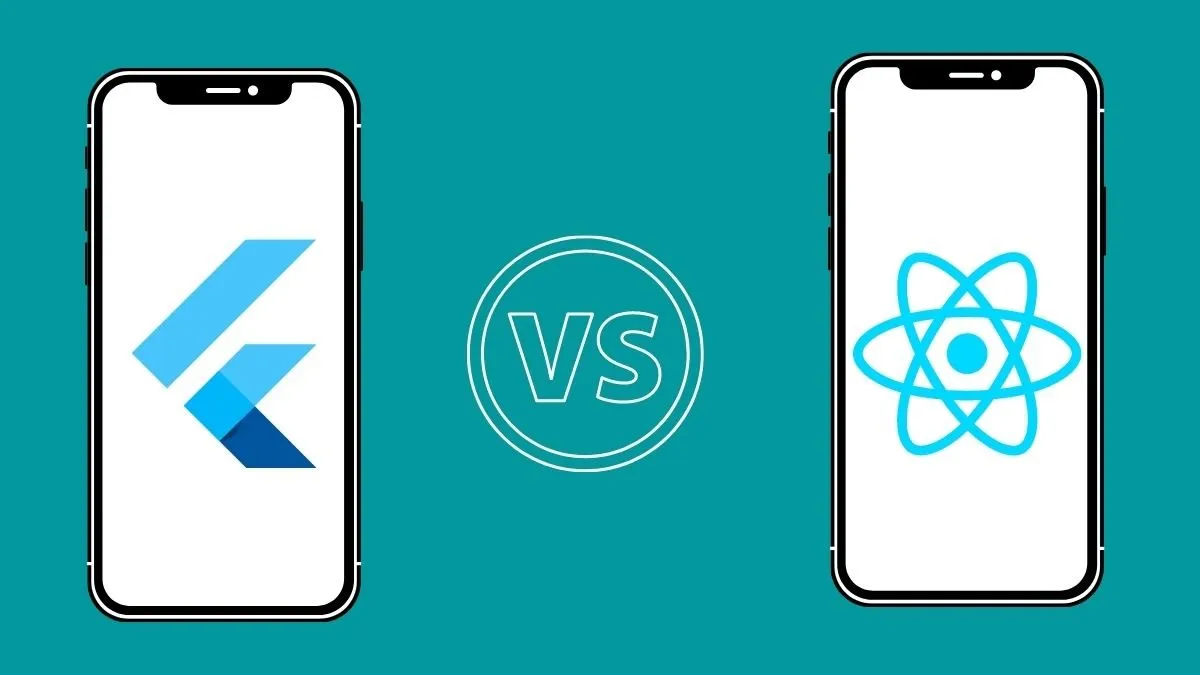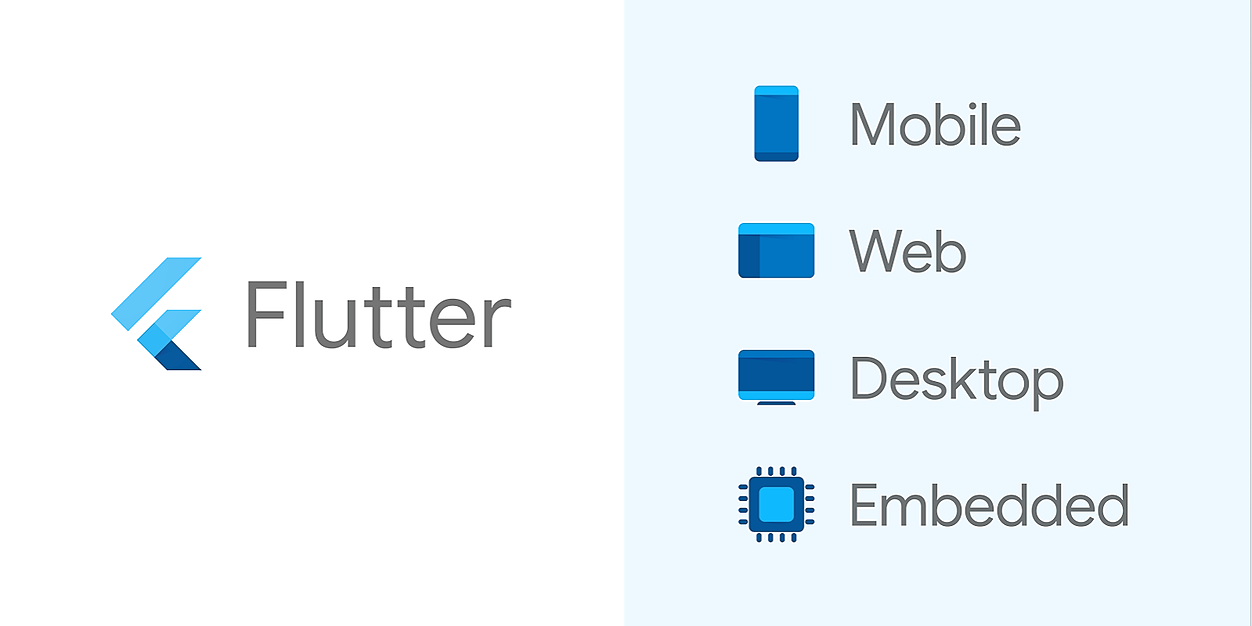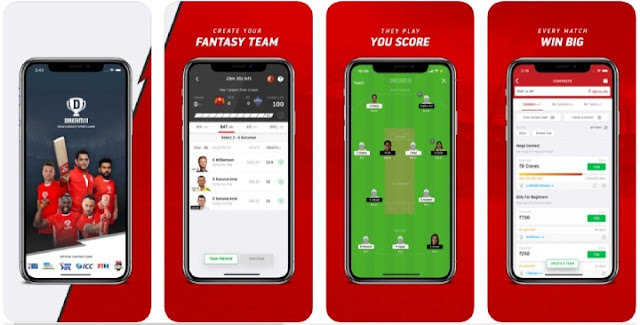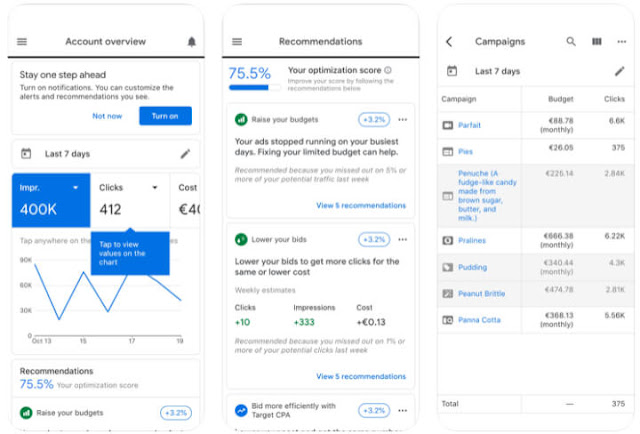Flutter and React Native, albeit being the two analogous angles of cross-platform app development, are always hailed as loyal rivals. Both help inventors lessen the Time to request( TTM) in shipping interactive business operations to guests and thereby ameliorate productivity.
Comparison between Flutter and React Native
What’s Flutter? – An overview
Flutter is an open- source frame that functions with a language called Dart created by Google. It’s generally addressed as an enhanced UI toolkit that’s used to make cross-platform operations with a single codebase. It provides availability to develop suggestive and flexible UI with native performance. also, it’s supported and contributed by a platoon of Google inventors and the entire flutter community.
Then are some cool stats for the request operation of Flutter
- 42 of the population use Flutter to make cross-platform mobile operations worldwide.( Source Statista)
- Flutter is loved by68.8 of the developing community.( Source StackOverflow)
- of the community choose Flutter for its libraries and tools fashionability.( Source StackOverflow)
Use cases of Flutter
- MVP mobile operations
- Apps with material design
- Apps that serve with zilches- position features
- Advanced Zilches plugins with simple sense
- High- performance apps with Skia rendering machine
- Flexible UI with high- position contraptions
- Extinguish apps with vast data integration
What popular apps are made with Flutter?
Google Advertisements – Leveraged Dart packages, Firebase AdMob plugins, and static mileage classes of Flutter to give movable stoner experience in iOS and Android.
Tencent – erected a connected and participating device experience between druggies with multi-platform support with smaller than 5 inventors.
Alibaba – Created a single- valve navigation experience for all operations with high FPS and a single codebase.
eBay – Leveraged complex and customised edge- powered AI features by integrating Flutter and Firebase to produce autoML for eBay Motors.
BMW – Developed high- performance stoner interfaces by usingflutter_bloc for operation.
Reflectly – Migrated from React Native to Flutter and created quality data events with StreamBuilder contrivance to
What’s Reply Native? – An overview
Reply Native is a popular open- source frame that runs on JavaScript. It primarily focuses on the native picture of operations that’s majorly compatible with Android and iOS. Reply Native is written with the combination of XML- Esque luxury and JavaScript which is also known as JSX. It’s backed by the social media mammoth Facebook, with over 50 devoted masterminds working on the frame at present.
Then are some cool stats for the request operation of React Native
- In 2021, 38 of inventors are reported to use RN for cross-platform operation development.( Source Statista)
- of inventors prefer to use React Native for its native tools and libraries.( Source StackOverflow)
- of the developing community loves using React Native.( Source StackOverflow)
Use cases of React Native
- Simple Cross-platform apps
- Quick prototype operations
- Apps with simplified UI
- Apps that look nearly native with responsive UX using FlexBox
- Apps with applicable factors
- Apps that operate with coetaneous APIs
What popular apps are made with React Native?
Facebook – Developed a supercharged, probative mobile UI with simple navigation.
Walmart – Improved stoner experience by erecting smooth in- app robustness identical to native functionality.
Bloomberg – Streamlined simple- to- access, substantiated content for druggies with automatic law refreshing features.
Instagram – Implemented drive announcement in the form of WebView without erecting navigation structure.
SoundCloud – Bridged the time gap between updates and renovated performances contemporaneously for iOS and Android.
Wix – Achieved high speed and dexterity in the development of configurable navigations and screen options.
Flutter and Reply Native advantages and disadvantages
Pros of Flutter
Hot- reloading Stateful Hot Reloading point reflects changes incontinently without losing the operation state.
Rich- contraptions Provides rich contraptions that follow the guidelines of Cupertino( iOS) and Material Design( Android).
flawless integrationRe-writing law isn’t necessary as it fluently integrates with Java for Android and Swift or Objective C for iOS.
Quick shipping Offers quick replication cycles and saves figure time as testing is needed only for one single codebase.
Codesharing Canons can be written and participated across platforms easier and briskly, which makes it perfect for MVP development.
Cons of Flutter
- Tools and Plugins Libraries and tools are emotional, yet it’s not as rich as React Native.
stoner interface Vector plates and vitality support have issues in rendering plugins on time.
Operating platform Not compatible to develop apps for tvOS, Android Auto, CarPlay, or watchOS.
- Updates Can not incontinently push patches and updates into operations without passing through the standard release processes.
Pros of React Native
- Native picture Uses host platform to natively render APIs without the need for HTML or CSS luxury.
- Performance Translates the luxury of an operation to mimic authentic UI rudiments and yet maintain high performance.
- Ecosystem Leverages rich ecosystem and UI libraries to automatically re-render app appearance with each state change.
- Debugging Provides availability to intelligent debugging tools and error reporting.
- Hot- reloading Allows hot reloading to add new canons directly into a live operation.
Cons of React Native
- stoner Interface Native picture of APIs may not support certain native UI rudiments, which may make the UI look a little off.
- Tools and Plugins Third- party libraries that can be used for better perpetration may frequently turn out to be outdated.
- Performance Doesn’t support threading andmulti-processing, performing in slow performance.
- Debugging Chrome debugger might be inconvenient to edit, check canons, and UI rudiments duly.
Performance comparison
The difference between the performances of React Native and Flutter is relatively debatable. The separate communities of both Flutter and RN are a bit divided over the content ‘ performance ’ as everything about them sounds good in terms of dexterity and speed. still, RN has also entered some review for its performance due to the involvement of native modules and third- party libraries. That said, let’s dive in a bit more in detail to learn about the Flutters. Reply Native performance difference. For this, we will consider a simple “ hello world ” app with one simple image erected with both Flutter and RN.
How does Flutter stand out in terms of performance?
Flutter operation is more performant as compared to React Native. It doesn’t bear a ground to communicate between the native modules due to the dereliction of native factors. The performance test indicated that the “ hello world ” app always performed at 60 FPS, and the time taken to render each frame doesn’t take longer than 16 milliseconds. The number of frames that got dropped were smaller. As mentioned, Flutter uses the Skia plates library, which allows the UI to be redrawn each time with each change in the operation view. No wonder, Flutter can perform efficiently indeed at 60 FPS.
Operation armature
Flutter & RN both offer several architectural advantages to operation inventors. Let’s talk about them in detail.
What kind of armature does Flutter support?
Flutter’s armature is concentrated. The scale of a simple operation erected on this frame starts with top- position root function or, in other words, platform-specific contraptions. It’s followed by introductory contraptions that interact with the platform and rendering layers. Just beyond the picture subcaste exists the vitality gestures that transfer API calls to the foundation of the operation. It’s also known as Scaffold that’s run by a C/ C machine and a platform-specific embedded.However, you can consider enforcing Flutter BLoC, If you want to separate the donation subcaste from business sense. This armature makes it easier for endured as well as inferior Flutter inventors to produce complex operations with small and simple factors.
What kind of armature does Reply Native support?
Under the hood, Reply Native possesses a ground between the Native thread and JavaScript thread. As per this functionality, the JavaScript law communicates with the platform and the Native API. In iOS, Reply Native uses JavaScriptCore independently to run all canons, whereas it bundles the JavaScriptCore within the operation in Android. Whilst this might increase the native functionality, it also increases the app size, performing in performance issues or device pause.
felicity for erecting complex apps- Flutter vs React Native
Both Flutter and RN offer sanctioned documents, guidelines, open- sourced systems, and third- party libraries and plugins to support inventors throughout the development process. Still, if we compare Flutter and Reply Native in terms of feasibility, we can conclude that the former is more favoured to make complex apps.
Is Flutter suitable for erecting complex apps?
At the time of writing this composition, Flutter isn’t suitable to handle more complex systems. Still, startups can still use flutter as a good result for erecting minimum Valuable Product( MVP).
It can be assumed as an excellent option to make briskly prototypes when you’re most likely to experiment with them and cut costs to see your idea in action. The idea then’s to make two different prototypes( iOS and Android) with Flutter and dissect the results in the request. Later, you can invest further and take your idea from simpler to complex bones .
Is Reply Native suitable for erecting complex apps?
Yes, you can work Reply Native to make complex native apps. But it’s important to note that will be likely to be possible only when you involve native app development along with React Native. At that stage, your operation is more likely to be cold-blooded than cross-platform. The entire process of erecting complex apps with Reply Native doesn’t only involve Javascript but the application of native development chops.
Reply Native vs Swift – A Side- by- Side Comparison for iOS Application Development
Ease of Testing
Maintaining the smooth functioning of law with minimum time and trouble is one of the primary pretensions of development. In the below section, let’s take a look at how easier it’s to apply testing in both Flutter and Reply Native apps.
How easier is it to test a Flutter app?
Flutter, on the other hand, offers expansive support for automated testing since it functions with an outrage. Not only does it offer a myriad number of testing features to test apps at the unit, contrivance, and integration position, but also boasts of detailed attestation related to it. What’s more, Flutter provides robust attestation to make and release Android and iOS apps on the Play Store and App Store independently. In addition, it has its deployment process proved officially as well.
How easier is it to test a React Native app?
Reply Native credits of no sanctioned support for UI position testing and Integration testing. Likewise, there are only a few unit- position testing fabrics available to test RN apps. No sanctioned support means inventors have to calculate on third- party tools like Appium and Detox and unearth bugs with the help of them.
Also, It’s still counting on third- party libraries for figure and release robotization. Shortly put, the entire frame does n’t offer any automated way to emplace the iOS apps to the App Store. Rather, RN suggests inventors define the homemade process of planting the app through Xcode.
Community around Flutter and Reply Native
Really, both Flutter and Reply Native have evolved over these times with every technological update. And, guess what? With every incremental interpretation and technological update, the interest and appreciation of the inventor community have increased. Let’s see how effects are between both fabrics when it comes to community engagement.
How big is the community around Flutter?
Ever since its launch in 2017, the Flutter community is gaining a laddie bit more traction than Reply Native. still, the number of professional contributors are 662 only, which is much lower than Reply Native. Yet, the count of live systems being diverged by the community together is around13.7 k, where anybody can seek help in development. Some popular platforms for connecting with the global community of Flutter
- Slack
- Disharmony
- Gitter
- Flutterday
- Mound Overflow
How big is the community around Reply Native?
Since the launch of React Native in 2015, its community has been growing, and the number of contributors to the frame on GitHub is the evidence of that. presently, there are further than 207 professional inventors who laboriously partake in their guests . Indeed a neophyte can fluently seek help in developing React Native operations. In fact, there are over19.8 k live systems where inventors come together to resolve issues. Some of the common platforms where you can find other React Native inventors, systems, conferences, and live events are
- Meet Up
- Slack
- Disharmony
- Telegram
- Mound Overflow
Modularity comparison in Flutter vs React Native
The Modularity aspect of a frame indicates the capability or the extent to which it allows different people with different specialised chops and gests to work under one design. For example, a big operation with an incoherent law structure may take longer to make. Let’s check whether Flutter and Reply Native compare in terms of Modularity.
Does Flutter support modularity?
Flutter offers better availability for platoon diversity as well as the division of design canons into different modules with its cantina package system. Your platoon can fluently construct different modules with the draw- in capability and add or change a codebase. At the Droidcon NYC conference 2019, BMW engineers mentioned how they enabled multiple brigades with different skill sets to painlessly work with Flutter.
Does React Native support modularity?
Compared to Flutter, Reply Native may offer lower modularity support. Android, iOS, and Reactjs inventors might find it hard to relate with each other. Without moxie, different brigades may have issues with law fragmentation in React Native. Still, Reply Native offers the possibility to combine simple native rudiments of different zilches platforms for different inventors to work together to some extent.
law Maintainability
Reply Native indeed has one of the biggest communities and sanctioned support, yet there are problems that you might face while maintaining the language for your operation. In fact, it’s more accessible to maintain Flutter than Reply Native.
How accessible is it to maintain law in Flutter apps?
In discrepancy, maintaining a Flutter operation is easy. The simplicity of law helps inventors spot issues, source external tools, and support third- party libraries. Likewise, the stateful Hot Reloading point incontinently resolves issues at hand. The time taken for releasing quality updates and making immediate changes in the operation are considered to be better than the hot reloading capacity of React Native.
How accessible is it to maintain law in React Native apps?
In React Native, upgrading and remedying the law is a pain, maybe. When you chopstick the law to suit your operation, it interferes with the frame’s sense thereby decelerating down the development process. In addition to that, the utmost of the native factors might have a third- party library reliance. frequently these libraries are outdated and can not be maintained duly due to the issues that come on with it by dereliction.
Comparing stoner experience in Flutter vs React Native
Stoner experience is one vital element in choosing the right mobile development frame for your design. It aims to offer intuitive guests that keep druggies stick to the product or brand. Also, a meaningful stoner experience allows you to define client peregrinations on your website that are most conducive to business success.
Flutter’s capability to give the stylish stoner experience
Flutter offers a rich stoner experience with simplified tools, rudiments, and indeed customised contraptions. The generational scrap collection point is also a part of Dart which helps in creating UI frames for object canons that may be temporary. This point of Dart allocates objects within a single pointer bump that avoids UI clutter, junk, and shutter of vitality pause during the development process.
Reply Native’s capability to give the stylish stoner experience
Android’s Material Design and Style Design in iOS are transubstantiation by the day, and it’s tough for React Native to keep up with the constant change in the conditions of native platforms. Also, ready- made React Native UI accoutrements similar as React Virgin, Shoutem, and Ant Design make it indeed more delicate to produce harmonious designs across platforms. Still, some precious factors like ScrollView fixed title, Modal factors, exertion pointers, Snap carousels, and Pagination factors help greatly in perfecting the UX across multi-platform.
Operation size
The selection of a mobile frame can have a large impact on the size of the operation law. For a large design, the operation size should dominate the frame size. lower size is always further in this case. Let’s chart out the difference between Flutter and Reply Native in terms of operation size.
Size of the operation in Flutter
The size of a simple welcome world app created in Flutter was7.5 MB. With Flutter, the size of this app is told by the Virtual Machine of Dart and the C/ C machine. still, Flutter can tone- contain all canons and means to avoid size enterprises. Also, operation of a special label like – split- debug- word helps reduce the law size.
Also read : Flutter advantages and disadvantages ?
Size of the operation in React Native
The original size of the Hello World app with Reply Native was 7 MB and when native dependences were added, the size increased up to 13.4 MB. Reply Native can reiterate operations briskly and at a minimum size, better than Flutter.
In addition to that, enabling Proguard and using enableSeperateBuildPerCPUArchitecture element will reduce the size in large by bus- generating split builds for all native and external libraries.
Learning wind
Both Flutter and Reply Native retain different literacy angles by which you can make some rough computations of the time taken to make a simple to- do operation from scrape. So how doable is it to learn Flutter and Reply Native? Let’s explore in the following section.
How good is the literacy wind of Flutter for inventors?
On the other hand, Flutter isn’t that hard to learn. Writing law with Dart might be a little unusual but that’s what makes developing with Flutter easier. To learn this frame, all neophyte needs is some introductory know- style of native Android or iOS development. What’s more, inventors have reported that attestation in Flutter is a lot smoother than Reply Native.
How good is the literacy wind of React Native for inventors?
literacy Reply Native is vastly simple for those who have erected operations using JavaScript. But, web development is different from mobile app development which is why mobile inventors find it fairly delicate to learn and apply the frame. Over time, Reply Native has released colorful libraries, expansive documents, and tutorials that ameliorate the literacy wind.
Comparison for platoon size in Flutter vs React Native
Irrespective of the advantages and disadvantages of Flutter and Reply Native, it’s important to identify the platoon size before you begin the development. This will help you plan and make a decision grounded on the cost that might be incurred in sourcing or hiring inventors who might be a neophyte or someone who’s formerly well- clues with the frame of your choice.
How big should be the needed platoon- size for Flutter?
It’s taken no further than 5 inventors for big players like Alibaba, BMW, Watermania, PostMuse among others to make their operations on Flutter. The frame’s literacy wind is easy. Not only does it allow inventors to write canons painlessly but it’s also easier for new inventors to understand those cannons. Since the training cost for Flutter and Dart is provident, indeed a neophyte inventor can be trained fluently and you don’t have to hire multiple educated inventors.
How big should be the needed platoon- size for Reply Native?
To make an operation with Reply Native, you ’ll need about 5 to 10 inventors. This platoon can be a blend of gifts with at least 2 Reply Native experts to guide the platoon through the development lifecycle. Also, since law conservation of different platforms is pivotal for the success of a React Native operation, it’s recommended that you team up with inventors who have a different specialised background.
Conclusion
Flutter does a great job at creating multiple duplications and MVP operations. Reply Native is a good frame to make simple native and cross-platform operations. To help you further, we ’ve created a roster that should help you choose which bone of these technologies must make it to your tech mound.







